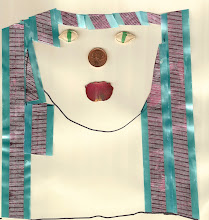
The troubador movement from southern Europe, credited by Ezra Pound and others as the source of modern literary culture, was composed of both high and low culture components....the court and the street.
The adulterous albas which view the sun arising from the windows of the aristocratic lady's castle bedroom vs. the songs and ballads of what Chaucer called the jongleurs and the golliardies, the popular poets, comedians and street performers.
Chaucer obviously made the distinction between his own work, read out loud at polite court gatherings to an exalted audience, and the activity of the low- life jongleurs and golliardies, performing for spare change in the mud on the roads from the normal rough passersby.
In tribal societies like the Anglo Saxon, the "commoners" were present in the mead halls presided over by kyniges (chieftains, kings), matthumgyfa (gift-givers), etc.
The same is probably true of the Homeric poetry -- a man with a lyre singing or reciting in front of the king of a small city state, surrounded by the other nobles and the farmers and soldiers, the ordinary folks of those days.
The Anglo-Saxons were semi-nomadic. The Homeric Greeks mostly a settled agricultural people.
The Anglo-Saxon scops from both sides of a battle would share a hillside and presumably compare tropes and interpretations of the events in front of their eyes.
Both Homer and the Anglo-Saxon poetry were written in praise of kings and heroes. Both were bloodthirsty.
There's art for assuagement and security, and art for arousal and risk. Both of them required within their own individual and historical moments.
Let's say W.J. Phillips with his calm BC landscapes, blue and airy atmospheres vs Emily Carr and the emotionally devouring forest, D'Sonoqua, the troubled skies, Hiroshige's high art of beautiful birds vs Hokusai's lyrical-comical realism of the streets, Mozart's symphonies and concertos vs the blues of Robert Johnson.
The refined abstractions of comfortable luxury of people who believe themselves in charge of their own destiny and the destiny of others vs the rough and tumble creations of people at the mercy of the vagaries of their social environment.
Some few are free and able to point the finger.
The Others, who are many, pointed at.



No comments:
Post a Comment